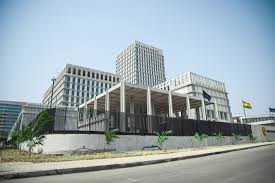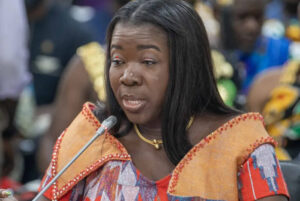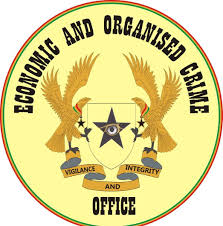BoG Introduces Steps to Curb Dollar-Based Pricing

In a bold move to strengthen the national currency and assert financial sovereignty, the Bank of Ghana (BoG) has announced stricter enforcement of legal tender regulations. The central bank is particularly targeting sectors where the practice of quoting prices in foreign currencies—especially the US dollar—has become widespread, including real estate, private education, and high-end retail.
Speaking at a Thought Leadership session during the Graphic Business/Stanbic Bank Breakfast Meeting in Accra, the Governor of the BoG, Dr. Johnson Pandit Asiama, emphasized the urgent need to restore confidence in the cedi. He warned that the continued dollarisation of local transactions undermines public trust and threatens Ghana’s macroeconomic stability.
“The cedi is the only legal tender in Ghana,” Dr. Asiama said. “This persistent reliance on foreign currency in local trade not only violates our laws but also weakens the foundations of our economic independence.”
To counter this trend, the BoG will step up enforcement of existing legal tender provisions while rolling out complementary policies aimed at increasing the use of the cedi in everyday transactions. One such initiative is the ongoing development of the e-Cedi, Ghana’s official digital currency. According to Dr. Asiama, the e-Cedi will soon be fully integrated with retail payment systems, ensuring that the cedi remains central to Ghana’s economic activities even as the country moves toward a more digital economy.
Regulating the Digital Asset Space
The Governor also revealed that the central bank is finalizing a regulatory framework for Virtual Asset Service Providers (VASPs). This framework is intended to bring oversight to the rapidly expanding digital asset industry, including cryptocurrency platforms and exchanges.
Dr. Asiama said the new regulations would align with global anti-money laundering (AML) and counter-financing of terrorism (CFT) standards. “Digital innovation must support our monetary objectives, not undermine them,” he stressed, noting that effective oversight of virtual assets is key to maintaining financial integrity and controlling foreign exchange flows.
Concerns Over Export Revenue and Savings
Beyond the issue of dollar pricing, Dr. Asiama expressed concern over how Ghana’s export earnings are managed. While the country’s export revenue has shown improvement, a large portion of those funds remain abroad or are not productively invested in the domestic economy. This trend, he said, deprives the country of critical capital needed for economic growth and job creation.
He also highlighted the persistently low levels of formal savings, particularly among small and medium-sized enterprises (SMEs) and informal sector players. Improving savings rates and boosting export value retention, he said, would play a major role in achieving long-term financial stability.
Calls for Broader Economic Reforms
The programme also featured remarks from key figures in Ghana’s financial sector. Dr. Adu Anane-Antwi, Chairman of the Governing Board of the Securities and Exchange Commission (SEC), reinforced the importance of encouraging cedi usage over foreign currencies. He cited examples from other countries—including South Africa, Kenya, and Ethiopia—where local laws strictly prohibit the use of foreign currencies for domestic payments.
“Many of us have travelled and experienced how foreign currencies are not accepted for transactions in these places. Ghana must take a similar stance to promote cedi usage and stabilize the foreign exchange market,” he said.
Abena Amoah, Managing Director of the Ghana Stock Exchange (GSE), advocated for broader local ownership of companies as a long-term measure to retain capital within the country. Using the case of MTN Ghana’s public share offering, she noted that requiring multinational companies to offer part of their ownership to Ghanaians has helped ensure that a portion of profits remains within the local economy.
Shaping Policy Through Dialogue
The event, jointly organized by Graphic Communications Group Ltd (GCGL) and Stanbic Bank Ghana, forms part of a quarterly policy dialogue series aimed at influencing government decisions in support of private sector growth. The discussion reflected growing consensus among financial leaders that protecting the cedi and promoting responsible monetary practices are essential to Ghana’s economic future.






